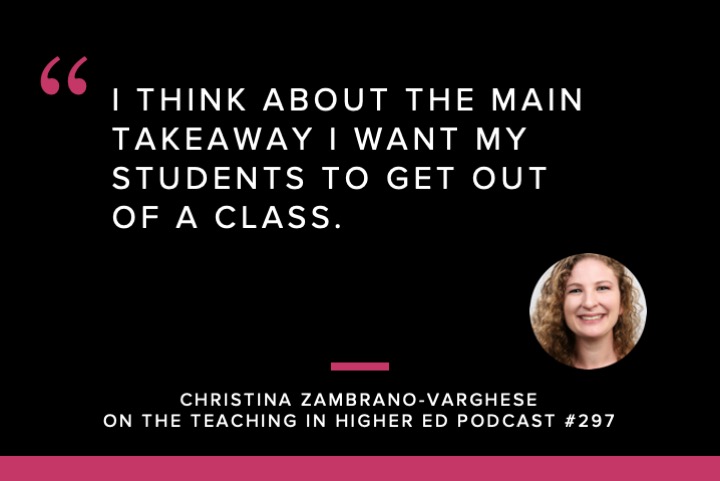


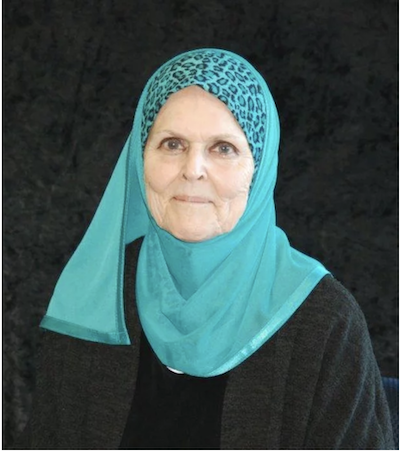
Experienced educator revives her classroom to meet the needs of 21st century students
As an educator of nearly 40 years, Dr. Dale Hoffman has seen the classroom change in more ways than one. While students sitting quietly listening to lectures while taking pages of handwritten notes might have been commonplace earlier in her career, many of today’s students are seeking a more collaborative learning environment. And that’s not to mention the diversity of students themselves.
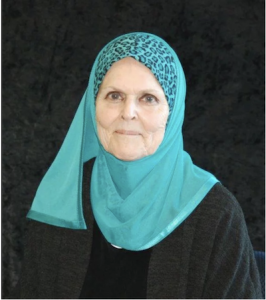 “Students today come from vastly different personal and academic backgrounds,” says Hoffman, professor at Folsom Lake College. “As instructors, we’re competing with social media and cell phones that can distract them — not to mention many of our students also have families, jobs and may be caring for other relatives. There are fewer students today who are focused full-time on their education.”
“Students today come from vastly different personal and academic backgrounds,” says Hoffman, professor at Folsom Lake College. “As instructors, we’re competing with social media and cell phones that can distract them — not to mention many of our students also have families, jobs and may be caring for other relatives. There are fewer students today who are focused full-time on their education.”
Hoffman recognized that these changes in the make up of today’s students require change in her teaching methods.
“I’m a sociologist. We live in an economic and social system that’s developing at a rapid rate. The reality is if you don’t embrace change, you’re going to be left behind,” Hoffman says. “Change always has a benefit if we take the time to find it. If I’m going to force my students to sit in rows and take notes the way I did as a student, then pretty soon, I’m going to find that no one is completing my classes. I want my students to be as excited about learning as I am.”
So when Hoffman received an email that her favorite course, physical anthropology, was canceled due to low enrollment days before the spring 2019 semester was set to begin, she had a plan.
“I told myself that I’m going to use that extra time to become a better teacher,” Hoffman says. She enrolled in the ACUE Effective Teaching Practices course through Folsom Lake College’s partnership with ACUE and quickly began implementing what she was learning in the classroom.
“ACUE emphasized changing our approach to teaching. For many community college professors, you get the job because you’re very knowledgeable in a specific subject matter,” Hoffman explains. “Being knowledgeable might get you into the job, but it doesn’t make you a teacher. To be effective as a teacher, you need more than just knowledge.”
Instead of beginning her courses by presenting the material she’s going to cover, Hoffman would instead tell her students that, “We’re going to explore this topic together for the next several weeks. We’re both a part of this group, and my job is to make it exciting and help you achieve the goals you have set for yourselves.”
She also recognized the need to invite students into the learning process in an engaging way and began incorporating more videos, class discussions and hands-on labs to create a level of excitement in the classroom. She also examined how her testing, assignments and syllabus worked together from the viewpoint of a student, which allowed her to see disconnects where she could provide greater clarity. And quickly, she began to see differences in student outcomes.
“I’ve noticed that more of my students complete the course and participate in discussions, but what really hit me is the improvement in the quality of student work,” Hoffman says. “In my lecture class, when I aligned my materials in a way that makes sense and started to discuss grading rubrics with my students, I ended up with much better quality responses to my essay questions. Seeing them move through different levels of the thought process — not just naming and describing but interpreting and analyzing — is really rewarding.”
As an added benefit, the course has helped Hoffman in her other job as principal of Granite Adult School serving California state prisoners.
“ACUE was a life changing experience for me and enhanced my professional skills,” Hoffman says.

Start to Finish (SSTF) announced this week a number of Research & Service Partners, including the Association of College and  University Educators (ACUE). Collectively, SSTF and its network partners are committed to helping higher education institutions and systems advance developmental education reforms. The announcement was shared through the SSTF office Twitter feed @_Strong_Start.
University Educators (ACUE). Collectively, SSTF and its network partners are committed to helping higher education institutions and systems advance developmental education reforms. The announcement was shared through the SSTF office Twitter feed @_Strong_Start.
SSTF is a network of committed postsecondary leaders and philanthropists, working together to change institutional practice and policy across the nation to bring equity to education. The collaborative initiative believes the single most impactful way to help students finish college and achieve a degree is to help them get a strong start by completing college-level math and English in their first year of study.
ACUE’s mission is student success through quality instruction. Research published by ACUE, its partners, and third-party evaluators collectively demonstrates the impact implementing evidence-based teaching practices can have on developmental education reforms and closing equity gaps.
• At Cal State LA, ACUE-credentialed faculty transformed development mathematics and, as a result, achieved annual 25% increases in completion rates 2016-18 and eliminated the achievement gap between Pell-eligible and other students. Data provided by Cal State LA.
• At Northern Arizona University (NAU), ACUE-credentialed faculty led the transformation of a gateway biology course, formerly a “weed out” class and, as a result, DFW rates dropped by half. Data provided by NAU.
• At City College of San Francisco (CCSF), average grades improved across 150 classes, enrolling more than 4,500 students, taught by ACUE-credentialed faculty. The project was funded by CCSF’s Office of Student Equity, and thus recruitment of faculty focused on courses with achievement gaps for students at risk of dropping out.
• At Texas Woman’s University, ACUE-credentialed faculty closed the course completion gap for African American students in 113 classes with 1,800 students.
• At Rutgers University-Newark, students were significantly more likely to earn an A, B, or C in courses taught by ACUE-credentialed faculty, compared to matched faculty. The findings from Rutgers University–Newark, among the most diverse universities in the country according to U.S. News & World Report, suggest that effective instruction is an important factor for achieving greater equity. The study was conducted in conjunction with the Center for Advanced Study of Education (CASE) at The Graduate Center at City University of New York.
“Students are more engaged, complete courses at a higher rates, more equitably with their peers, when faculty are prepared to be highly-effective teachers,” said Susan Cates, CEO of ACUE. “We’re excited to collaborate with Strong Start to Finish to further arm faculty with the evidence-based teaching practices they need to reform developmental education in ways that bring equity and success to all first-year college students.”
Strong Start to Finish (SSTF) has Scaling Sites across the U.S., including in Arkansas, California, Georgia, New York and Ohio. In total, SSTF’s work impacts an estimated 3.7 million students across 250 institutions.
The initiative of the Education Commission of the States (ECS) received initial funds in 2017 and a more recent round of $5.35 million in October 2019— from Ascendium Education Group, the Bill & Melinda Gates Foundation and The Kresge Foundation. The latest funds are earmarked to spur equity-centered research, practice, and policy invention and innovation, address emerging challenges at currently supported systems, and to provide targeted technical and strategic assistance to systems preparing to implement developmental education reforms at scale.
In concert with its most recent funding, SSTF launched a Seeding Site grant program which provides targeted technical and strategic assistance to support ongoing efforts of systems preparing to implement developmental education reforms at scale.
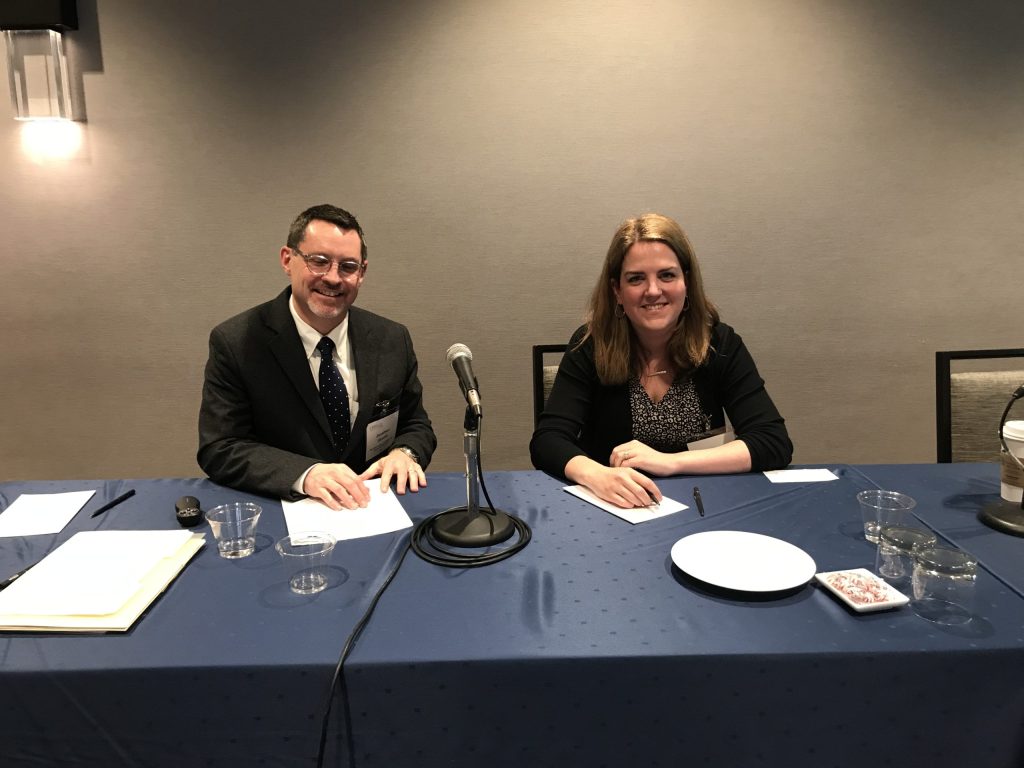
“How do we know?” It was the opening question Meghan Snow, ACUE’s executive director of research and Jonathan Gyurko, president and co-founder of ACUE posed to attendees at the Council for Higher Education Accreditation’s (CHEA) Annual Conference, held January 28th in Washington, D.C.
How do we know our students are learning? And how do we know institutions are engaging with—and meeting—the teaching and learning standards set by their accreditors?
An answer begins with an understanding of what constitutes good teaching and the kind of pedagogical development that promotes it, and then connecting the dots between faculty development, improved instruction, and stronger, more equitable, student outcomes.
Gyurko and Snow’s presentation, “Accounting for Teaching’s Value,” highlighted the high standards accrediting bodies have set for teaching and learning—from providing “comprehensive” professional development and engaging in “ongoing inquiry” into the processes of teaching and learning to “evaluating the effectiveness” of teaching to improve instruction. They acknowledged that bringing evidence to bear to meet these high standards can be challenging, particularly amidst all of the accrediting demands on colleges and universities, but not impossible.
In the session, attended by nearly 100 accreditors, policy makers, and institutional leaders from the U.S. and abroad, Snow presented ACUE’s multi-stage evaluation framework as a viable approach. The methodology measures change at each step along the chain of events—from the impact of faculty development, to changes in teaching, to effects on student achievement. ACUE’s recommended model controls for other influences affecting outcomes in order to isolate teaching effects. As CHEA noted, this approach is reconceptualizing the purpose and scope of faculty development “in ways that allow accreditors to better connect faculty-related accreditation standards with an institution’s mission.”
This research protocol is now in use nationwide. Snow presented results from a number of studies conducted by ACUE, third-party evaluators, or university IR offices. This research demonstrates that faculty at ACUE partner-institutions are learning about—and implementing—evidence-based teaching practices. Most important, students taught by these educators are learning more and completing courses in greater numbers, more equitably with their peers. The research methodology collects comparison data, and mean differences are statistically significant.
These partnerships and studies are providing institutions with better ways to meet accreditation standards. Gyurko pointed to Sam Houston State University (SHSU) which has made ACUE’s comprehensive support to faculty a central component of their quality enhancement plan.
In a video SHSU produced as part of its self-study and shared for peer reviewers, Todd Primm, director of the Professional and Academic Center for Excellence said, “We know a key function of a university is student learning, and we know from a number of studies that the single largest factor for student learning is faculty effectiveness.” Primm continued, “Faculty come here because they want to help their students, but often they’re just not sure how to do it.” Through its work with ACUE, SHSU is equipping its educators “with an enormous variety of tools they can choose from that would be most appropriate for their students.”
“We know that teaching and learning are complex processes,” Gyurko shared. “But that shouldn’t stop us from being as intentional as we can in describing and measuring the steps we take to enhance quality instruction and improve student outcomes. Great teaching is an art, but there’s also a science we can name, study, and help faculty develop, to help more students succeed.”
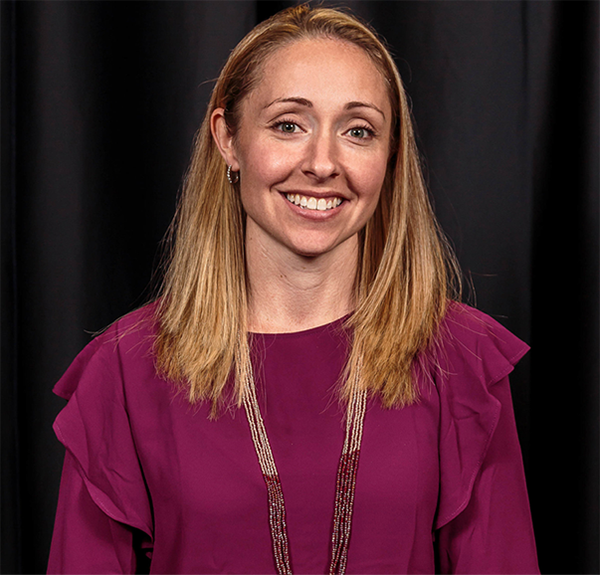
By Alison Malmon
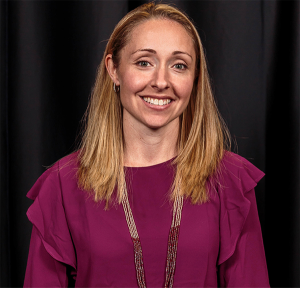 Student mental health is a growing issue on college and university campuses. National sources confirm a high and rising prevalence of depression, anxiety, and suicidality among students, and college presidents recently agreed that faculty on their campus are spending more time addressing student mental health concerns than three years ago.1
Student mental health is a growing issue on college and university campuses. National sources confirm a high and rising prevalence of depression, anxiety, and suicidality among students, and college presidents recently agreed that faculty on their campus are spending more time addressing student mental health concerns than three years ago.1
While researchers are still examining potential contributing factors to this problem, the promising practices to address it are better known, and are reflected in Active Minds’ Healthy Campus criteria:
• Stronger campus policies.
• An evidence-based approach.
• A culture of support and care.
• Individuals in all corners of the campus community, particularly faculty, equipped and ready to support struggling students.
Our data show that, next to a friend or campus counseling center, students most want to talk to a faculty member or academic advisor when they are struggling. Yet, more than half of faculty we have surveyed feel only somewhat supported to recognize and help students who are struggling, and 22% do not feel supported at all.
In addition to providing faculty with better guidance in support of student well-being, Active Minds recognizes that a culture of wellness and mental health support is only achieved when faculty wellness and mental health supports are prioritized alongside those of students’. Faculty feel more empowered and prepared to support their students when they have had opportunities to focus on their own well-being and mental health.
Colleges and universities presented with Active Minds’ Healthy Campus Award are offering particularly innovative programs to support faculty well-being. For example:
• The University of South Carolina provides comprehensive faculty and staff wellness initiatives, inclusive of wellness coaching, prevention screenings, mindfulness and meditation workshops and space, and mental health counseling.
• Kent State University’s employee wellness offerings include a variety of physical activities, lunch and learns, free Fridays at the Recreation Center, cash incentives to reward positive health behaviors, health screenings, stress management coaching, a certain number of free mental health counseling sessions, and massage therapy.
• The University of Oregon’s Duck Nest Wellness Center provides faculty with skill-building opportunities for stress management, body-positive programming, nutrition information and promotion of health dietary choices both on- and off-campus, meditation and relaxation, yoga, aromatherapy, therapy dogs and mental well-being workshops.
• Lawrence University’s wellness initiatives focus on key interventions: tobacco cessation, stress intervention, nutrition, and challenges to increase physical activity. Their goal is to meet faculty where they are in their wellness journey by offering a variety of programs focused on the individual including our mind spa, massage program, personal training, and dietician.
Faculty seeking ways to make time for their own mental health and well-being can consider the following:
• It’s OK to not always be available. Take the time you need to re-charge and preserve your own creativity and autonomy.
• Say “no” and set boundaries when needed. Pause and reflect before responding to a request and discern when to say yes and when to say no. It is possible to say “no” in ways that still show care of others.
• Prioritize your own well-being. Take the time you need to eat nutritious foods, exercise, play, rest, reflect, stretch, and grow in your life.
• Take a 10-minute break every day. Take a break from your devices and experience nature and connect to the world beyond yourself and your work
We know most faculty members are not experts in wellness and mental health. They cannot (and should not) replace the role of the counseling center. However, in addition to setting an example of self-care, faculty members do play a critical role in helping struggling students day-to-day—often by simply showing them that they care.
In partnership with ACUE, Active Minds will provide continued practical, evidence-based strategies that faculty members may implement in “the everyday.” Through these strategies, faculty can contribute to the creation of caring campus communities that support students to thrive and to seek professional help when needed.
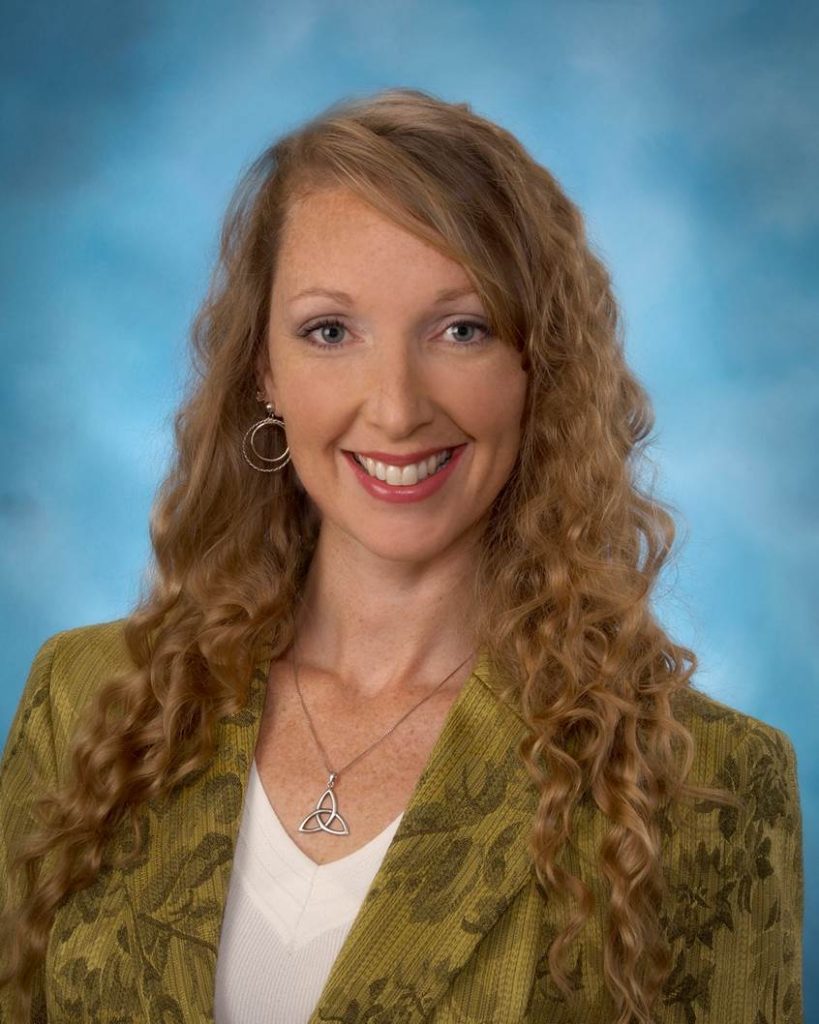
By Darcie Larimore-Arenas, PA
The ACUE course has been a game-changer for me. I started as faculty at Touro University four years ago, having come from a clinical background in family practice and a teaching background at the K-8 level. As a graduate of the program where I am now teaching, I assumed (incorrectly) that teaching the next generation of PA/MPH students would feel instinctive and that I could fall into a rhythm guided by my personal history and experience. Unfortunately, this was absolutely not the case. I struggled to find my way in a variety of important areas, including curriculum development, syllabus creation, testing, and effective use of class time. I have had excellent colleague mentorship but felt that I was piecing together the pathway to better teaching. Enter ACUE.
Last year, the ACUE course rolled out to 20 staff and faculty at Touro University Nevada and nine more at Touro University California, expanding to 20 participants at both campuses this year. Dr. Jim O’Connor, Touro’s Founding Dean Emeritus of the College of Education and Health Sciences, has observed that participants seem to relish the opportunity to improve their teaching skills.
I admit that I was reticent to take on additional work and responsibilities with this course given that I am full-time principal faculty and practice clinically, as well. But the hybrid design of the course, which includes online and face-to-face meetings, gave me the flexibility I needed. I have been able to employ practical and meaningful changes to my courses as a result of what I am learning.
Since I have begun employing ACUE practices in the classroom for improved delivery of material, students have responded enthusiastically and with improved participation. A sampling of my newly instituted techniques includes mini-lessons, lecture outlines presented at the beginning of class, small group and pair-and-share activities to begin class or break up the lecture, and student-led summaries of the lecture material. In addition, ACUE has greatly helped me to better understand how to make learning outcomes student-centered and how to align the outcomes with objectives and assessments. I am developing improved testing methods and creating transparency in the process so that students feel empowered for their own learning.
And, as Dr. O’Connor has observed, the faculty’s eagerness to put themselves back in the classroom as students has really helped their students optimize success. He said, “They [faculty] are cross-pollinating their ideas. They’re trying new things and finding out those things are working.”
While there was value in my past experience as both a teacher and student, there was still so much more for me to learn about effective teaching practices. After learning so much about creative ways to better structure my classes, I have noticed a difference in how my students have responded. I feel better organized, on time, and more energetic about the approach to delivering materials. We all seem to be truly enjoying the experience of learning and teaching more. I am eager to learn new strategies and I am excited for what’s to come in the classroom for my students and myself!
Darcie Larimore-Arenas, PA is an assistant professor for the Dual Master Degree Program for Physician Assistant and Public Health Program, Touro University California.
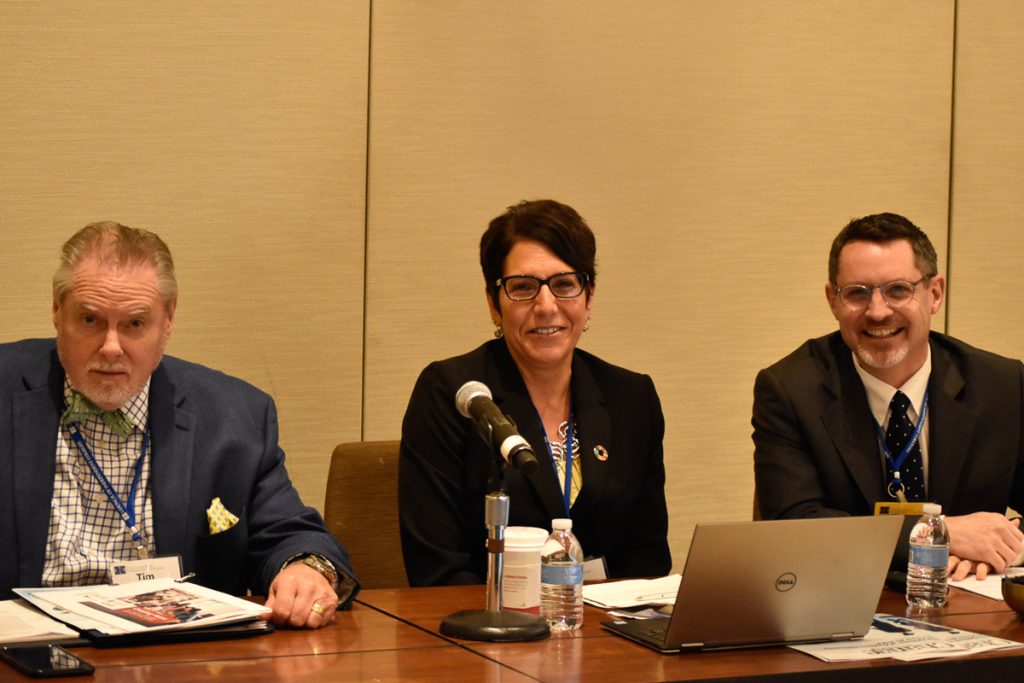
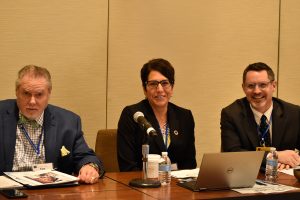
Tim Barry, president of Alderson Broaddus University; Lillian Schumacher, president of Tiffin University; Jonathan Gyurko, president and co-founder of ACUE
When Gallup found recently that only 28 percent of liberal arts majors felt confident they would be ready for workplace success, ACUE and the Council of Independent Colleges (CIC) resolved to take action. We know that a quality liberal arts education provides some of the most durable intellectual preparation for a future of unpredictable work, and undergraduate humanities majors consistently top the list for lifetime earnings. The Gallup statistic implied, however, a tension between career readiness and the liberal arts.
Together, ACUE and CIC set out to better connect the two by preparing faculty to teach with evidence-based approaches and methods that improve learning and develop career-necessary skills. And in the process of deepening the relationship of a liberal arts education and career preparation, help students realize the value of their education.
The CIC Consortium for Instructional Excellence and Career Guidance
With generous support from Strada Education Network, ACUE and CIC formed a Consortium for Instructional Excellence and Career Guidance. Twenty-six CIC members were selected through a competitive RFP, at which we prepared and credentialed nearly 500 faculty members in evidence-based teaching practices shown to promote student engagement, persistence, deeper levels of learning and students’ career readiness—and study the impact on both faculty and students.
Why this focus on faculty members, rather than career counselors and advisors? One reason was the Gallup-Purdue study of 30,000 graduates, finding that alums were twice as likely to be engaged in rewarding work and leading fulfilling lives when they had a professor who took an interest in them, made them excited about learning, and assigned meaningful, semester-long projects. Gallup also found that students look to faculty as mentors and often perceive the advice from faculty more helpful than the guidance from career counselors. Finally—as a practical matter—students spend far more time in class with their professors than with advisors and other support professionals—making class time a key opportunity to emphasize career-relevant learning.
Over the 2017-2018 academic year, cohorts totaling hundreds of faculty members were enrolled in an ACUE course that led to a Certificate in Effective College Instruction with a Concentration in Career Guidance and Readiness. Through course demonstration videos, interviews with experts, planning guides and other resources, faculty developed evidence-based teaching approaches in all 25 core teaching competencies of ACUE’s Effective Practice Framework, which addresses five major areas:
And for this Consortium’s focus on career-preparation, faculty also learned how to:
Creating Value: The Results
The results deepened the Consortium’s conviction that we can make clearer the important connections between a liberal education and development of career-related skills. We also saw that faculty are eager to learn about and implement the teaching practices to show the relevance of their field.
In total, 450 faculty earned their certificate for a program completion rate of 86%. This is no small accomplishment for faculty, given that this was a year-long course that required implementation of at least 25 evidence-based practices—a meaningful investment of time and energy. 95% found the experience relevant, and we saw strong increases in faculty members’ confidence in embedding career guidance and designing career-aligned assignments.
As for student impact, a very large percentage of the 60,000 students taught by participating faculty reported learning career-related skills—thanks to the help of their faculty. Still under analysis are other measures of student impact, including changes in grades and course completion rates. Fortunately, these strong faculty and student leading indicators are similar to what we are seeing at implementations that are farther along, where we’ve had the time to study, publish, and independently validate studies on firmer measures of student impact.
Among students taught by ACUE-credentialed faculty, we’re seeing closed Pell gaps, stronger completion of gateway courses, closed completion gaps between African American and all other students, and increased grades among other findings. We have every reason to believe we’ll see similar results across the Consortium.
Administrators and faculty in participating institutions also observed significant cultural change. Lillian Schumacher, president of Tiffin University, noted in her panel remarks at the CIC President’s Institute, that faculty grew in their belief that teaching career-ready skills is part of their role as instructors. Tim Barry, president of Alderson Broaddus University, also on the CIC President’s Institute panel, shared that the Consortium gave him another opportunity to speak with faculty about the importance of teaching and learning. Given the many demands on a president’s time, and the sharing of responsibilities with a provost, Barry noted that this is “something presidents sometimes don’t talk about enough,” but how critically important it is to do so, because “what else is there?”
Lessons Learned
There were other key learnings, too. First, any concerns that faculty might reject the entire focus on career-readiness where put to rest. Faculty loved the opportunity to learn how to better show the relevance of their work to students’ future lives.
Second, we learned that it’s a challenge for very small institutions to enroll whole cohorts faculty, and for that reason ACUE recently launched in early 2020 open enrollment, micro-credential courses where institutions can enroll smaller numbers of faculty into courses with colleagues from across the country.
A last lesson learned, goes back to questions about the value of a liberal arts education. Amidst all of the efforts to better communicate the value of a college education—to bolster public confidence, particularly in a liberal arts degree— we found that we can create more value, every time we help a student better understand the relevance of their education, and every time we retain and graduate more well-prepared students, who go on to become ambassadors and champions of our value.
This essay was prepared from remarks delivered at the Council of Independent College’s 2020 Presidents Institute and from the article “Creating Value” in Change: The Magazine of Higher Learning (2019).
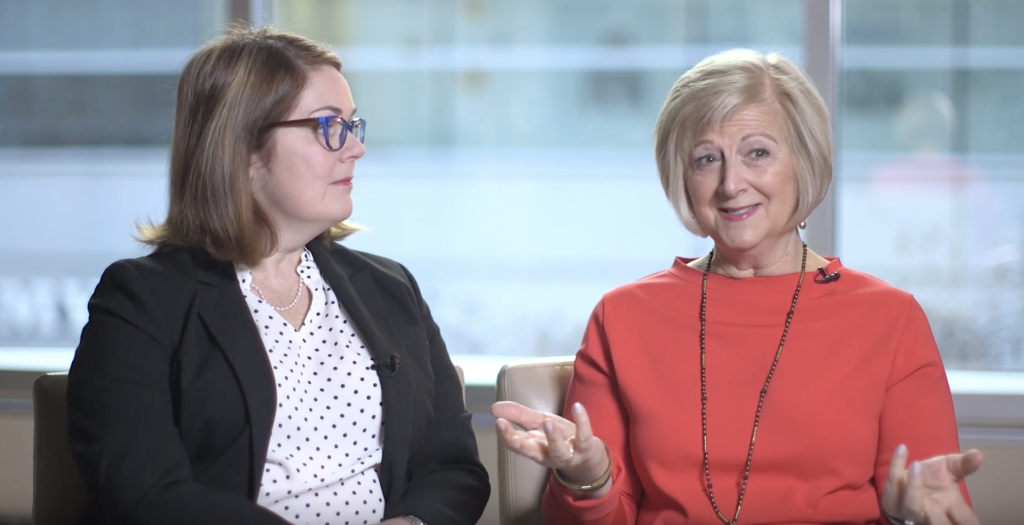
Dr. Carol Rolheiser is clear: her passion for teaching is at the core of her professional work. A professor with the University of Toronto’s Department of Curriculum, Teaching, and Learning, Dr. Rolheiser also serves as the university’s director of the Center for Teaching Support & Innovation (CTSI). ACUE recently spoke with Dr. Rolheiser and her colleague Megan Burnett, associate director of the CTSI.
After looking for a faculty development experience that Rolheiser says would “support the building of teaching culture across the University of Toronto,” they found ACUE. They launched the Effective Teaching Practices course with 45 faculty members in mid-2019.
The duo’s insights several months into the experience?
“Our biggest worry was that the basics would feel like the basics or it would feel foundational. It doesn’t because they [faculty course-takers] are applying new ideas they haven’t thought about or ideas that they have been using are now more intentional. And they’re also affirmed because there are things that they now are thinking about in a new way,” said Rolheiser.
“And the level of discussion that we have seen on the discussion boards is amazing. They’re sharing ideas. They’re cross-pollinating. And it’s a very diverse group. Lots of different disciplines represented. And they’re learning from each other, which is one of the key factors that we wanted in place for this experience,” added Burnett.